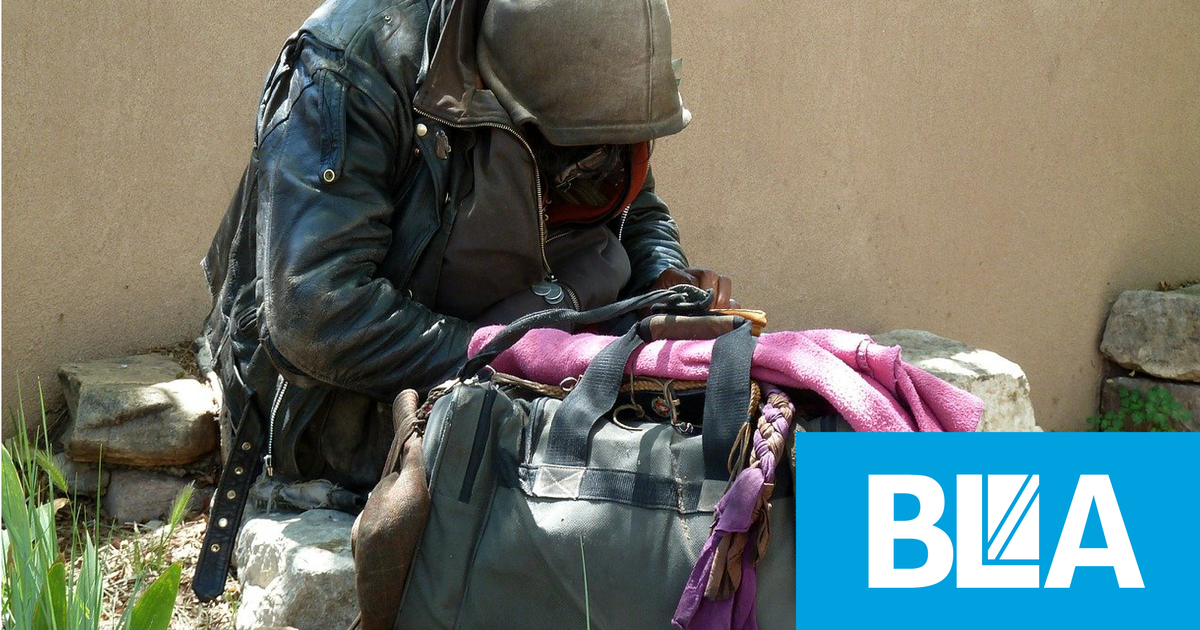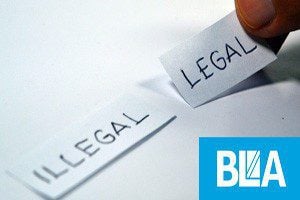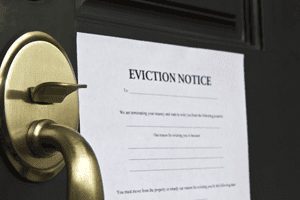What is squatting?
Squatting is a term used to refer to people entering and staying in a building or land without the legal owner’s consent. Squatters are also known as trespassers.
Squatting in residential properties in the UK is illegal, and a squatter can be arrested. Under current legislation, if a squatter is found guilty, they can be sent to prison, fined or both.
It is very rare a trespasser is sent to prison for squatting.
People occupying a dwelling unlawfully can also be charged if they damage the building, for example, breaking a window or a door to get in. This can be under criminal law or as a civil matter.
This only applies in England and Wales. Long–term squatters can eventually become the registered owner of a building if they have occupied it continuously for 10 or 12 years.
If the property is unregistered at HMLR, the occupiers must prove that they acted as occupiers having control of the building throughout this period and that they did not have the owner’s consent to do so.
If an occupier applies for adverse possession of a registered property, HMLR will inform the legal owner, who has 65 days to object to the application.
So, make sure the address on the HM Land Registry “office copy” of a building you own is where you could receive correspondence. According to the HMLR, property fraud has increased more than threefold in recent years.
We seldom forget to change our utility bills when we move. However, most property owners are oblivious to the risk of not changing their address with the HMLR to reflect an up-to-date address on the office copy!
A valid objection will result in the rejection of the occupier’s application. However, eviction proceedings must commence to remove squatters and repossess the building. Not doing so will cause problems later.
 Circumstances, a squatter can be arrested for squatting
Circumstances, a squatter can be arrested for squatting
Occupiers can be arrested for squatting if they are living in a residential property or intend to live there, and:
- they did not get the owner’s permission to live in or on the land or building
- They entered the building without permission
- They should have known that they are trespassing
Occupiers can be arrested for squatting in any residential building that was designed as a dwelling to live in before they moved in.
This can be like houses and flats and includes temporary or moveable building structures, like mobile homes or caravans.
What are squatters Rights UK?
Squatters’ rights in Scotland are not the same as those in England and Wales. In England and Wales, squatters’ rights differ from those for residential and commercial property.
Squatters’ rights in residential property are limited, and the police are able to take action if required by the property owner.
When it comes to non-residential buildings like offices, shops, factories, warehouses, or land, etc, a landlord or the legal tenant will require a possession order through the courts.
Squatters rights UK for commercial owners means they must obtain a possession order through the county court before the squatter can be evicted.
Many ask why squatters have rights when they have no legal right to reside in a building they do not own. It’s partly due to homeless people who may have nowhere to reside and often use premises which they can get into easily.
When can a squatter not be arrested?
Squatters cannot be arrested if they first enter the building or land with the owner’s permission; this could be like someone who is a tenant or a licensee.
They cannot be arrested if their tenancy or licence fixed term has ended, they have not yet moved out, or the renter is in rent arrears.
In cases like this, the landlord must serve a notice and, in most cases, go to court to evict and repossess the property through the court procedure.
The legal owner or the registered owner must issue a claim for possession and must not unlawfully evict the occupiers.
Squatters in a commercial property
Those who own residential buildings are in a much better legal position regarding squatters, as the police can arrest and prosecute a squatter.
If a squatter wants to avoid doing anything illegal, they should be aware that they should squat in a commercial building.
Usually, squatters are very well organised, knowledgeable about their rights and run an efficient method for occupying commercial premises or land.
Commercial property owners and leaseholders have noticed an increase in recent years in the number of squatters breaking into commercial properties.
The criminal offence of squatting by section 144 of the Legal Aid, Sentencing and Punishment of Offenders Act 2012 is controversial in that it only applies to residential property.
The increase in squatters in commercial buildings has led to calls for the legislation to apply to commercial property as well.
Adverse possession and Squatters
Another term that can be used is ‘adverse possession’ for squatters or trespassers.
The right to apply through HMLR for legal ownership of the subject building through a process known as ‘adverse possession.’ If the occupier can show positive evidence of continual occupation and improvements to the property over 10 years, the right for adverse possession can be used. The 12-year rule applies if the property is not registered with HMLR.
Adverse possession application must be filed with the HM land registry for long-term occupiers of a building, and unregistered land may not have much resistance.
What the police can do about squatters
The police have the power to enter and search a dwelling to arrest someone they suspect of squatting if it is a residential property.
The offence carries a maximum penalty of six months in prison, a £5,000 fine or both.
If squatters have taken over your home or a neighbour’s home If you have squatters in your home, you should call the police.
If you think someone is squatting in your neighbour’s or friend’s home and you know they have not asked anyone to stay there, you should consider calling the police.
If you are a squatter and have nowhere to live, the local council may be able to assist you in finding somewhere to stay.
What rights do squatters have?
Since 1977, it has been unlawful to threaten or use violence against the owner or legal occupier to enter a property or land where someone is present and opposes the entry.
This legislation was introduced to prevent landlords from using violence to evict their tenants. The 1977 Act is commonly known as “squatter’s rights.”
What penalties do residential squatters face?
The offence of squatting in England & Wales of a residential dwelling carries a maximum penalty of six months’ imprisonment and or fine of up to £5,000.
Can squatters be evicted?
Yes, they can. The owner or a leaseholder can seek an interim possession order (IPO), or they can go for possession. It is important to decide if you want to go directly for a possession or interim possession order.
It is usually better to go for a possession order rather than an interim one. You will need to consider the pros and cons of the two options and seek legal advice.
Lawyers generally use court forms N5 and N121 with a witness statement to prepare the possession claim.
Possession claims are issued through the local county court in the jurisdiction of the let property.
How can you prevent squatters from occupying commercial premises?
The best way to prevent squatters from taking over your property is to:
keeping your building secure all the time
Carry out reference checks when letting the property
This may prevent the building from being occupied by rogue tenants who may abandon it, which will increase the risk of squatters.
Squatting in non-residential properties
Non-residential property (commercial property) is deemed as any building or land that is not designed to be lived in.
When it comes to commercial property, the police can act if squatters commit other crimes when entering or staying on a property or land.
Crimes may include:
- causing damage to the property when entering
- causing damage while on the property
- not leaving when a possession order/ bailiff writ has been issued
- stealing from the property
- using utilities like electricity or gas without permission
- if you see someone breaking into or damaging property.
Squatters, also known as trespassers or unauthorised occupants, have been a subject of interest and concern in property law in the United Kingdom. Below are frequently asked questions (FAQ) regarding squatters’ legal status in the UK.
Are squatters protected by law in the UK?
In the UK, squatters do not possess legal rights to the property they occupy. However, the law protects squatters, particularly regarding eviction procedures.
Can squatters claim ownership of a property in the UK?
Yes, under certain circumstances, squatters may be able to claim legal ownership of a property through a process known as adverse possession.
This typically involves occupying the property continuously for a specified period and meeting specific legal requirements.
What is adverse possession?
Adverse possession, also known as squatters’ rights, is a legal principle that allows individuals to claim ownership of land or property they have occupied without permission for a certain period.
The requirements and timeframes for adverse possession vary depending on the jurisdiction.
How long must a squatter occupy a property to claim adverse possession?
In the UK, the period of occupation required to claim adverse possession is typically 10 or 12 years, depending on various factors, such as whether the land is registered or unregistered.
How can property owners protect their property from squatters?
Property owners can take several measures to protect their property from squatters, including securing vacant buildings, conducting regular inspections, and seeking legal advice to understand their rights and obligations.
How can property owners remove squatters from their property?
Property owners can evict squatters legally by obtaining a court order for possession or seeking assistance from law enforcement authorities.
Following the proper legal procedures is essential to avoid potential legal complications.
What are the risks of dealing with squatters?
Dealing with squatters can pose various risks for property owners, including property damage, legal disputes, and potential financial losses associated with eviction proceedings and property maintenance.
Are any organisations or resources available to assist property owners with squatters?
Yes, several organisations and legal resources offer guidance and support to property owners facing issues related to squatters.
These may include legal aid services, property management companies, and government agencies specialising in property rights and disputes.
Landlord Advice UK is an expert in Eviction, or you can visit the Citizen Advice Bureau.
Where can I seek legal advice or assistance regarding squatters’ rights and property issues?
Property owners seeking legal advice or assistance concerning squatters’ rights and property issues can consult with qualified solicitors or legal professionals specialising in property law.
Additionally, local government offices and housing authorities may provide information and resources related to property rights and regulations.
By understanding the legal framework surrounding squatters’ rights and taking proactive measures to protect their property, property owners can mitigate the risks associated with unauthorised occupation and safeguard their interests by UK law.
Source: British Landlords Association
Author: Sarah Featherstone
Date: 1st of January 2024
The British Landlords Association is a free national landlords association, join us today for Free!
Related Blogs:
Is our housing market about to crash?
Tenant Eviction Process Course – Latest Tenant Eviction Process course 2021
Commercial Landlords how to deal with rent arrears in 2020, Forfeiture and Statutory demand


 Circumstances, a squatter can be arrested for squatting
Circumstances, a squatter can be arrested for squatting


